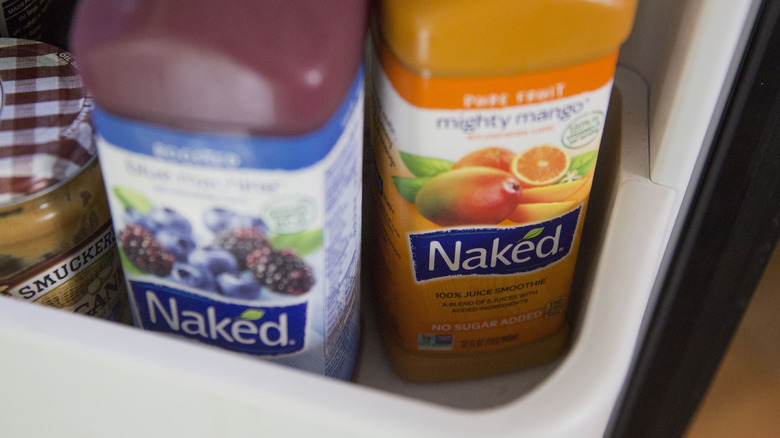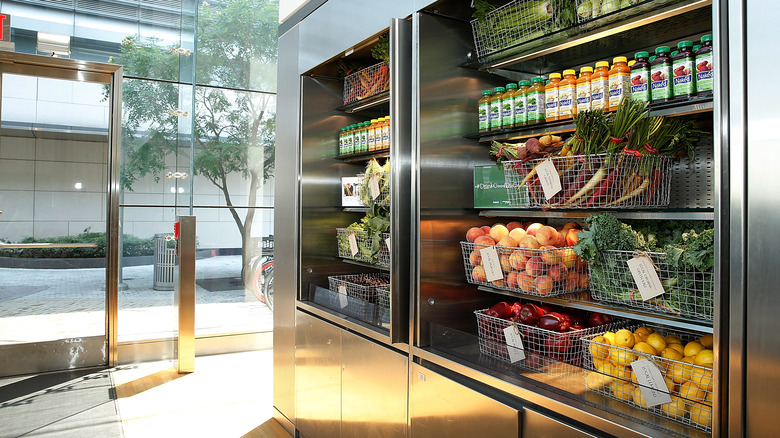Why You Should Think Twice Before Drinking Naked Juice
Name the best smoothie you've ever had. Was it Naked? Not naked like Adam and Eve, but the brand Naked Juice. You know the mouthwatering drinks you can't wait to pop open. Full of refreshing ingredients and good for your gut. Naked appeals to those of us who want to live well. But are these tasty juices as good as they look?
It is advertised as the ultimate drink to guzzle. Completely vegan, non-GMO, with no added flavors or preservatives. We love to see it. Naked is only available in Canada, the U.S., and England. Naked claims to be good for you and kind to the environment, infused with antioxidants like beta carotene, herbs like spirulina, and all the vitamins you can ask for. This fruity juice also has live culture probiotics that assist with digestion (via WebMD). Food Ingredients First writes that Naked was one of the first in the U.S. to offer a probiotic drink aside from kombucha.
But their marketing is actually misleading
Why do we love drinking Naked? Because we gravitate towards what tastes and looks good for us. Evidently, that's actually the marketing goal. Using vibrant colors on the packaging attracts the health-conscious consumer. Insert a BOGO tag and they've got you — hook, line and sinker. Quick tip: reading the nutrition labels informs you of what's inside, before you buy.
We found info that Naked may come with some hidden concerns. According to Healthline, "Despite having no added sugars, Naked juice beverages are still high in sugar from naturally occurring sources like fruits. What's more, they're low in fiber, as most of this nutrient is removed during the juicing process." In 2016, Business Insider reported that PepsiCo, the creator of Naked, was sued by the Center for Science and Public Interest in a class action lawsuit, for misleading consumers with their packaging. Not so wholesome after all.
CPSI's mission is to "... win better food labeling and more honest marketing, and encourage reforms that benefit consumers." Business Insider reports the Pomegranate Blueberry juice (which is unlisted on their website) had 61 grams of sugar. On the other end of the spectrum, a can of Pepsi has 41 grams of sugar (via Pepsi). Red flag anyone?
Naked Juice has more sugar than a can of soda. The American Heart Association suggests daily sugar intake of up to 36 grams for men and 25 grams for women. There are alternative ways to get your daily nutrients. You may be better off with a low-sugar, meal replacement smoothie or eating fruit with natural sugars and fiber. To ensure what you're drinking is nourishing, always glance over the nutrition labels before making a purchase.


